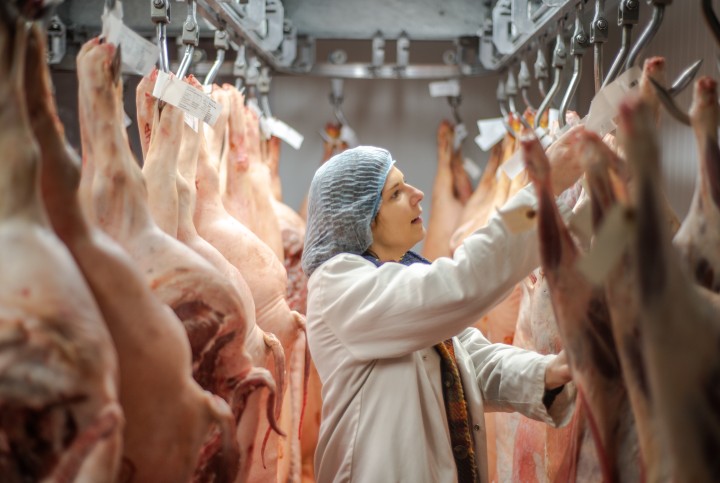NFFN farmers use various routes to bring their products to market, but whether they sell to supermarkets or connect with consumers through methods such as direct sales or farm shops, there is almost universal agreement that the supply chain needs major reform.

NFFN’s UK Manifesto: Farmers' perspectives on securing a fair and transparent supply chain
All imagery: Joannes Coates © for the Nature Friendly Farming Network

On Cornwall’s Lizard Peninsula, Dave Oates farms in a way that combines food production with protecting rare and important biodiverse habitats. Around 80% of the farm’s produce, including most of the lamb from his native breed flock, ends up on the supermarket shelves after being sold to abattoirs on a wholesale basis.
It’s a model not without issues.

“One problem is that there aren’t enough abattoirs and wholesalers or enough butchers to cut locally produced meat,” Dave says. “That reduces the amount of choice we have on price and puts us in a weaker position.”
Dave would also like supermarket customers to know more about how his animals live at Rosuick, where stocking densities are kept low to preserve landscapes such as heathland and their diet includes herbal leys and species-rich grasslands. “I absolutely feel my product is being under-valued by the consumer because they don’t know enough about it,” he says. “Sometimes the big national retailers are good and fair, but we have no control, and they need to be clearer about the market.”
Good food shouldn’t be elitist.
Dave Oates, NFFN Champion
Meet Abby Allen, Pipers Farm
Abby Allen is the Director of Farming for Pipers Farm, an organisation working with dozens of independent, nature-friendly farms which delivered around 80,000 food boxes to customers in 2023. She says Pipers was initially founded as a reaction against the industrialisation of food production.

“Commodity markets are having a huge effect on farming, nature and the landscape,” Abby says. “If farmers don’t get paid fairly, they can’t reinvest, whether that’s in planting trees or hedgerows, restoring wetlands or reducing their stocking densities to make more space for nature.
“Farmers really struggle when supermarkets use items like meat as loss leaders, although in some ways it’s worse for people growing vegetables as their products will rot and be wasted. Retailers also want homogenised products, which leaves no room for native breeds, farmers managing specific landscapes or farms working at a scale that suits their land.
Supermarkets have to start playing fair. They cannot continue behaving the way they are currently. They need to start respecting their suppliers and acting responsibly.
Abby Allen, NFFN Champion
What’s the solution?
For Abby, the solution is to build up and support a vibrant network of grassroots alternative outlets to sit alongside the food retail giants, although this will also require buy-in from the public. “In countries like France and Italy, every small town still has a bustling food market, and they can survive because customers don’t want to eat food produced in a factory. They want to eat fresh and local,” Abby says. “We need more of that and more small grocery stores selling goods from down the road. We need to show consumers how delicious food can really be and how they can spend money on food in a way that supports small-scale farmers and also has health and community benefits.”
Dave also agrees that reforms in this area should result in support for making high-quality, nature-friendly food more widely available. “I shouldn’t have to charge an absolute fortune so only a few rich people can afford to eat my beef or lamb,” he says. “Good food shouldn’t be elitist.”
Evidence shows that an increase in farm gate prices would not significantly impact the price people pay at the till. Food can be affordable while paying farmers fairly if other costs are controlled. But this requires better supply chain regulation, so we are asking the next UK government to secure a fair and transparent supply chain as part of our UK Manifesto.
Read our UK Manifesto
Download
